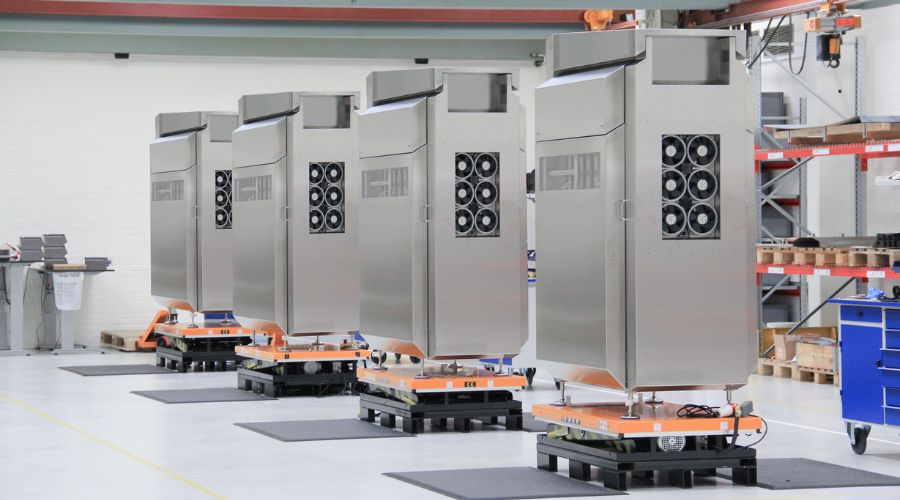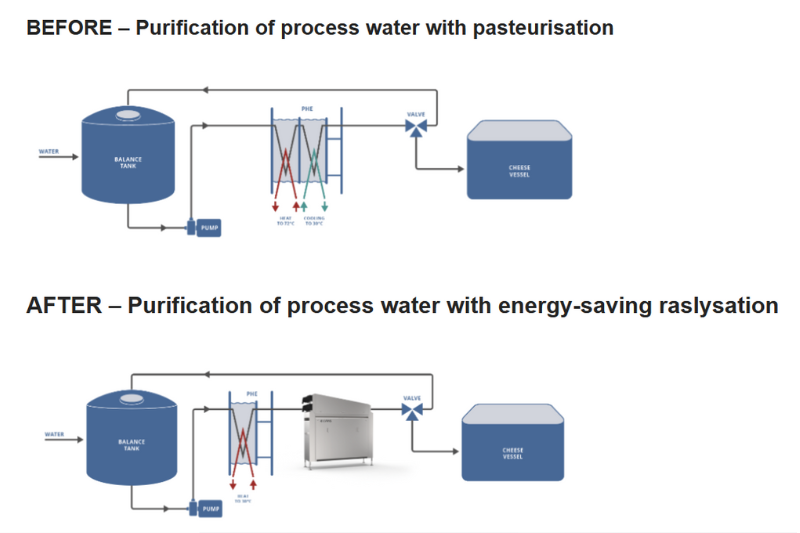Can UV pasteurisation technology bring savings to dairy’s energy bill?
19th March 2024
Renewable dairy technology manufacturer Lyras shares how farmers can save money by using UV pasteurisation technology.

Lyras says that with the help of its latest technology, a dairy business can now cut 91% off its energy consumption, through the inactivation of microorganisms in processing water.
Inactivation now happens through UV-driven raslysation rather than traditional heat treatment. The new technology provides full microbial control while bringing massive energy savings and reducing the environmental impact.
Lyras’ safe pasteurisation replacement also removes all risks of glass contamination, the company says.
The raslysation system is constructed in such a way that there is no direct contact between the treated liquid, water, and the ultraviolet lamps, while a log 12 reduction is achieved on microorganisms in water.
Big energy saving
Senior sales engineer, Allan Holst Sørensen, explained: “The dairy has replaced its pasteuriser for water treatment with a raslysation system from Lyras. This ensures the desired water quality and prevents the product from spoiling when it is flushed from tanks and pipes. The risk of glass contamination is also eliminated.
“The big energy saving is won in that the dairy no longer must heat water to 72 degrees and subsequently cool it to a service temperature of 30 degrees, which is the case in traditional pasteurisation.
“Instead, we effectively inactivate the microorganisms using UV light without having to heat the water. After that, we use a heat exchanger to ensure that the water has the exact desired temperature when utilised. Thus, the water flushes the curd grain out of containers and pipes without changing its texture.
“If the temperature is wrong, the curd grains retract, ruining the structure of the cheese. With the new raslysation system, the dairy saves energy and money while eliminating the risk of glass contamination and ruined cheese.”
Proteins protected due to full microbial control
Raslysation also secures high product quality in opaque liquids like brine, whey, blood plasma, protein solutions, juice and industrially fermented liquids. Because heat is avoided, the product’s valuable proteins are kept in their original form.
When the technology is used as a replacement for depth filtration of, for instance, enzyme solutions, the production process gains higher yield and an increased level of automation.
Lyras’ goal is to implement raslysation across the global process industry. Thereby both contribute to reducing the world’s total CO₂ emissions and increase food safety globally. Raslysation systems are already installed in companies across Europe, Australia and the USA.
Inactivates all microorganisms effectively
Food business operators have various requirements for the quality of the processing water. Usually, you have separate water sources and analyse their quality as part of the manufacturer’s own checks.
Raslysation effectively inactivates all microorganisms and can therefore often fully replace the traditional heat treatment of both water and product.

Lyras and raslysation
Raslysation, developed and patented by Lyras, inactivates microorganisms in both transparent and opaque liquids using UV light. The method is far less energy-intensive than traditional pasteurisation and filtration.
The company says that with raslysation farmers can save between 60 and 90% energy and 60 to 80% water compared to traditional pasteurisation.
Raslysation uses a UV light source combined with a light filter sorting off the unwanted wavelengths. The liquid is led past the light source in a continued, controlled movement, making sure that all products are illuminated. All unwanted microorganisms are thus effectively inactivated.
Read more farm business news.



